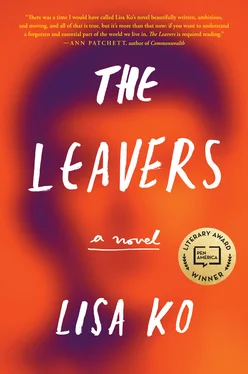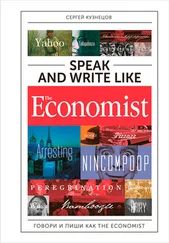Deming chased after music with a hunger that bordered on desperation. Why didn’t other people have the same need, how could Kay prefer the low, modulated voices of NPR in the car when she could as easily choose to blast the blowout world of Hendrix or the bright angles of Prince or the sunglare of Bowie ( water, Deming would see when he listened to “Sound and Vision,” water water water )? When he was a grown-up with his own car, he’d never be so boring. Binge-listening to a good song was better than binge-eating a bag of Hershey’s Miniatures in the pattern of Mr. Goodbar — Milk Chocolate — Krackel — Special Dark (there had been one glorious, motherless Bronx afternoon when he and Michael had done exactly that). Music was a language of its own, and soon it would become his third language, a half-diminished seventh to a major seventh to a minor seventh as pinchy-sweet as flipping between Chinese tones. American English was loose major fifths; Fuzhounese angled sevenths and ninths.
He made up band names on his walks home, sketched out their album covers and song lyrics: The Toilet Plungers, “Floaters or Flushers.” Dumpkin & Moore, “I Shot the Food Lion.” Necromania, “Brains on a Spike.” Roland, delighted when Deming showed him the list, scribbled the fake band names onto the fronts of his notebooks, and when other kids asked about them he would feign shock and say, “You don’t know that band?” They’d shake their heads. “Hey, Daniel, you get that new Necromania album yet? I like that first track, ‘Brains on a Spike.’ ” In the middle of the hallway, around the corner from Principal Chester’s office, Roland belted out the lyrics Deming had written: Brains on a spike / Yum yum burp / Heart on a spike / Damn that hurt . Deming wanted to correct Roland. It was heart on a knife, not spike . “I heard they’re playing at the Dunkin’ Donuts next month,” Roland said aloud, to no one in particular. “Necromania! I’m getting tickets. Don’t want it to sell out.”
Cody Campbell, who played soccer with Roland, came up to Deming in Homeroom and said, “I heard about the band you’re in. Roland’s band. Necro. mania.”
“That’s my band, not Roland’s,” Deming said. “I started it.”
IN NOVEMBER, PETER AND Kay asked Deming what he wanted for a birthday gift. “An electric guitar,” he said. On the morning of his twelfth birthday he awoke to find an index card on his bedside table, with a note in Peter’s handwriting: It’s time to play some Hendrix .
“It’s a treasure hunt,” Peter said, clapping his hands together. “You go the place you think is being referred to on the card in order to find the next clue, and so on. The clues lead to your birthday gift.”
“It’s a Wilkinson tradition,” Kay said. “Every year on our birthdays, we make treasure hunts for one another. On my last birthday, your father set up clues that led to a restaurant near Syracuse. Now it’s your turn.”
Deming went downstairs and lifted the lid of the record player. On the turntable was another card that said What word comes after ‘surprise,’ alphabetically? He took the dictionary down from the bookshelf, flipped through pages until the next card fell out.
After being led to the linen closet, the china cabinet, and the dishwasher, he followed a clue that said Put your socks away to the hamper, and opened it to find a box wrapped in silver paper, topped with a plastic bow. It was a big box, but not big enough for a guitar.
He brought it to his bedroom. “Open it!” Peter cried.
It was a new laptop, white and glimmering. “All yours.” Kay kissed him on the cheek. “Happy birthday, Daniel.”
Deming pierced the plastic wrapping with his fingernail. The plastic clung to the cardboard, then slowly unfurled. He opened the box, lifted the lid of the computer, and plugged it in, wishing that Michael could be there so they could watch videos together, wanting to show it all to Michael: the laptop, the records, the tapes, the Discman, the town full of white people. Where was Michael, why wasn’t he here? It was Roland he invited to his birthday dinner with Peter and Kay, at Casa Margarita in the strip mall on the highway, where they ate fajitas and drank virgin margaritas with paper umbrellas tucked in the slush. The waiters led the room in singing and Deming blew out the candles on his ice cream cake. When Roland saw the laptop, he whispered, with a reverence that made Deming proud: “Your parents are cool.”
As long as he didn’t think about his mother, Deming was not that unhappy in Ridgeborough. Yet there was always this nagging, icy swipe of fear, a reminder that he needed to stay alert. At times the fear was so far in retreat he forgot its existence; at other times it was so strong he could barely stop himself from shrieking. These people were strangers. He couldn’t trust them. Like when a Chinese maid had appeared on a TV show, a woman in a tight dress with garish eye makeup speaking a botched version of Mandarin, and Kay had stopped talking, the silence in the room was so loud it formed a dark red curtain, and Kay had flushed and quickly changed the channel, blabbing about winter and skiing as the TV played a commercial with a blonde lady putting a plate of fish sticks in a microwave. If Leon or Mama or Vivian had been there they would have all laughed at the Chinese maid together, made a joke about what province she was from, how could they get a job like that. Or the time Kay asked him to run into Food Lion and pick up a gallon of milk while she waited in the car, and Deming swore he’d heard someone make a noise like they did in kung-fu movies: hi-ya! When he told Kay about the sound, she had said, “Maybe you misheard? Maybe they were singing a song, or telling a friend about a movie?” Or eating shitty Chinese takeout at Roland’s house, gloppy chicken in nuclear red sauce, and Roland had poked at the meat lumps and asked what it was and his mother joked that it was cat or dog, was that a tail they saw there, and Deming felt chilled, implicated. Be careful. They’re not on your side. It’s important to be strong.
“Next year, can I get a guitar?” They were driving home after dinner at Casa Margarita, after dropping Roland off. If he had a guitar, he and Roland could have a real band.
“Let’s not carried away,” Peter said. “Music is fine to listen to as a hobby, but you need to focus on school.”
“But what if my grades get better?”
“You need to be more responsible, Daniel. Don’t ask for more when you can’t even be thankful for what you already have.”
“I am thankful.”
Kay turned around. “Enjoy your laptop first. Live in the moment.”
THEY WERE TALKING IN bed again. “He’s getting C’s and D’s,” Peter said. “We should look into a tutor. A student from Carlough.”
“That’s a good idea,” Kay said.
“He needs to work harder.”
“Oh, God, sometimes I look at him and think, what are we doing with this twelve-year-old Chinese boy? In Ridgeborough? Jim and Elaine, at least they’re in New York City. How could we have considered bringing a child from China here? The other day, Daniel told me he’d heard something, I don’t know, racist at the Food Lion. I was horrified. And now, whenever we go out, I’m suspicious. Are people looking at us because I have blonde hair and he has black hair? Or is it more nefarious? It’s making me paranoid.”
“We’re learning, we’re learning.”
“I mean, should we cook Chinese food? Or start Mandarin lessons again? I don’t want to be this, you know, this white lady—”
“You’re not doing anything wrong. It’s not easy, caring for a foster child. This has been a big change for us, a big adjustment.”
Читать дальше











